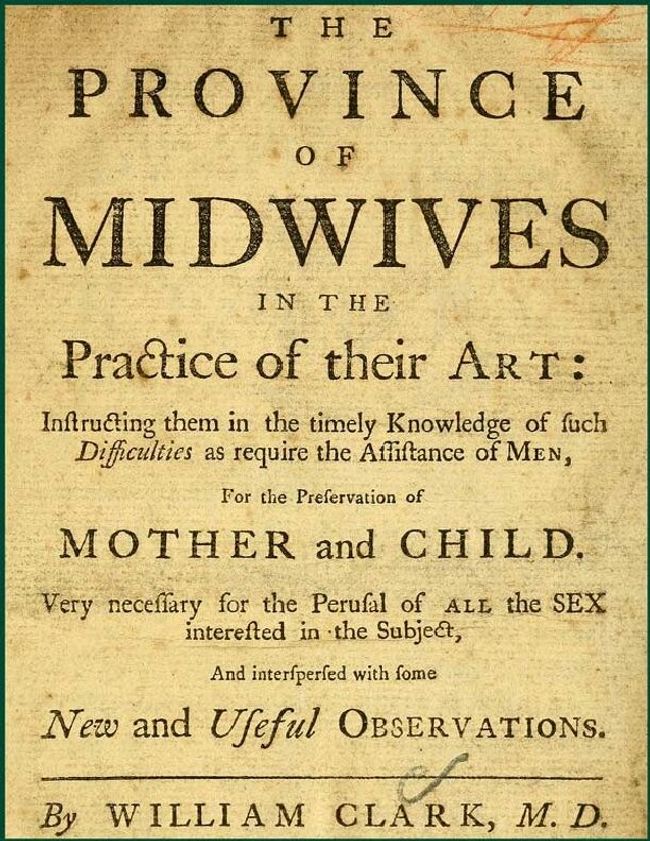نتائج البحث (218,336)
Kirchliche Personalführung am Beispiel der Jahresgespräche - Eine kirchentheoretische Reflexion
CC BY-SA
Nahezu alle (evangelischen) Großkirchen in Deutschland haben nach der Jahrtausendwende flächendeckend Mitarbeiter- oder Personalentwicklungsgespräche eingeführt. In der Hannoverschen Landeskirche wurde deren Einführung als „Jahresgespräche“ besonders breit diskutiert. Die vorliegende Arbeit untersucht diese Diskussionen als Ausdruck eines veränderten Selbstverständnisses der gesamten Leitungspraxis der evangelischen Kirchen und stellt sie in den Kontext der Debatten zur kirchlichen „Organisationsreform“, die seit den 1990er Jahren die Praxis und Theorie der Kirche beschäftigen. Anhand der Visitation wird ein Modell entwickelt, das kirchliches Leitungshandeln und die damit verbundenen Konflikte und Spannungsfelder in drei Grunddimensionen beschreibt und differenziert. In Anwendung auf die Jahresgespräche werden damit Konfliktstrukturen und Problemfelder sichtbar gemacht. Auf diese Weise werden Personalentwicklung und Personalführung der Kirchen einer tiefergehenden praktisch-theologischen Reflexion unterzogen.Nahezu alle (evangelischen) Großkirchen in Deutschland haben nach der Jahrtausendwende flächendeckend Mitarbeiter- oder Personalentwicklungsgespräche eingeführt. In der Hannoverschen Landeskirche wurde deren Einführung als „Jahresgespräche“ besonders breit diskutiert. Die vorliegende Arbeit untersucht diese Diskussionen als Ausdruck eines veränderten Selbstverständnisses der gesamten Leitungspraxis der evangelischen Kirchen und stellt sie in den Kontext der Debatten zur kirchlichen „Organisationsreform“, die seit den 1990er Jahren die Praxis und Theorie der Kirche beschäftigen. Anhand der Visitation wird ein Modell entwickelt, das kirchliches Leitungshandeln und die damit verbundenen Konflikte und Spannungsfelder in drei Grunddimensionen beschreibt und differenziert. In Anwendung auf die Jahresgespräche werden damit Konfliktstrukturen und Problemfelder sichtbar gemacht. Auf diese Weise werden Personalentwicklung und Personalführung der Kirchen einer tiefergehenden praktisch-theologischen Reflexion unterzogen.

Wellbeing and Devolution: Reframing the Role of Government in Scotland, Wales and Northern Ireland
Jennifer Wallace
CC BY
“In this book, Wallace elegantly shows how committed government intervention can improve wellbeing with rigour and impact. It’s an essential read for anyone concerned with the future of the UK.”Julia Unwin, CBE“As someone who commissioned one of the first attempts to learn from the devolved nations I am delighted to see this publication by Jennifer Wallace. We in England need to learn a great deal more in policy areas like wellbeing where we are clearly lagging behind the other parts of the UK.”Matthew Taylor, Chief Executive, RSA“In this book, Wallace offers a practical and balanced analysis of the evolution of wellbeing as a policy narrative and framework in the devolved nations of the UK. This timely contribution is relevant to anyone interested in the emergent idea of ‘wellbeing’ beyond our borders too.”Megan Mathias, Wales Centre for Public PolicyIt has been over twenty years since the people of Scotland, Wales and Northern Ireland voted for devolution. Over that time, the devolved legislatures have established themselves and matured their approach to governance. At different times and for different reasons, each has put wellbeing at the heart of their approach – codifying their values and goals within wellbeing frameworks. This open access book explores, for the first time, why each set their goal as improving wellbeing and how they balance the core elements of societal wellbeing (economic, social and environmental outcomes). Do the frameworks represent a genuine attempt to think differently about how devolved government can plan and organise public services? And if so, what early indications are there of the impact is this having on people’s lives?Jennifer Wallace is Head of Policy at Carnegie UK Trust where she leads the Trusts work on understanding wellbeing. She has worked in the public and voluntary sector for almost twenty years and is the author of a large number of research-based public policy reports, many of which relate to public sector reform.

Huisbeelden in de moderne Nederlandstalige poëzie
CC BY-NC
This book explores images of the house in Dutch-language poetry from the postwar period. On the one hand the archetypical notion of the house has always had an established place in poetry. It is connected to the meaning of house as a building, but even more so as an imaginative house or a home. On the other hand the house is a rich metaphorical concept that is often used for expressing poetical ideas. In a historical survey of modern Dutch-language poetry different images of the house are presented. The overview shows that the choice of certain metaphorical concepts is connected to literary and extra literary contexts, and to the poetical ideas of poets. Conceptual integration – blending theory – is used throughout this book as a theoretical frame. From this perspective poems are regarded as a complex blend, a network of connections which are constructed during the reading and interpreting processes. Finally, the book shows how metaphorical blends are integrated in concrete poems and which kind of house images result from this process.

Manifiesto del Nuevo Realismo
Maurizio Ferraris
CC BY-SA
Critique of postmodernism and relativism valórico, fending off a new materialist position

Oslo Manual on Select Topics of the Law of Armed Conflict
CC BY
This new open access book provides a valuable restatement of the current law of armed conflict regarding hostilities in a diverse range of contexts: outer space, cyber operations, remote and autonomous weapons, undersea systems and devices, submarine cables, civilians participating in unmanned operations, military objectives by nature, civilian airliners, destruction of property, surrender, search and rescue, humanitarian assistance, cultural property, the natural environment, and more. The book was prepared by a group of experts after consultation with a number of key governments. It is intended to offer guidance for practitioners (mainly commanding officers); facilitate training at military colleges; and inform both instructors and graduate students of international law on the current state of the law.

The Province of Midwives in the Practice of their Art Instructing them in the timely knowledge of such difficulties as require the assistance of Men, for the preservation of Mother and Child; very necessary for the perusal of all the sex interested in the subject, and interspersed with some New and Useful Observations.
William Clark
PD-US

Ghostly Phenomena
Elliott O'Donnell
PD-US
Throughout his life, Irish-born writer Elliot O'Donnell reportedly experienced several encounters with ghostly beings, including one run-in with a spirit in Dublin that almost proved fatal. Inspired by these experiences, O'Donnell devoted his life to hunting and documenting specters. The collection Ghostly Phenomena brings together an impressive batch of ghost-related folktales, sightings, and anecdotes.

What Are The Benefits of COVID 19 Vaccine Registration.pdf
Healthy MKE
In order to prevent the spread of viruses and the emergence of Covid-19 phases, it would be beneficial if you considered getting vaccinated for the potential benefit to your health. Once you have registered with Covid-19 vaccine Milwaukee County, count yourself lucky. In doing so, you and those around you will be protected from catching an illness from a virus that spreads.

WORLD DAY AGAINST CHILD LABOUR_ A STEPS TOWARDS CHANGE -SOS CV of India.pptx.pdf
soschildrensvillages.in
Observed on June 12th every year, World Day Against Child Labour calls attention to the problem of child labour and the plight of children involved in the process worldwide. Child labour refers to depriving a child of his/her childhood by hampering their holistic development. Read the full blog to know more visit: https://www.soschildrensvillages.in/world-day-against-child-labour-a-step-towards-change/

What Are the Uses of Wi-Fi Jammer?
NovoQuad
Wi-Fi jammers offer a powerful tool for responding to unauthorized connections, transmissions, and security concerns. Security teams can use Wi-Fi jammers and sophisticated interception systems to tackle threats.

Why Call Out for Emergency Electrician in Gold Coast.pdf
Why Call Out for Emergency Electrician in Gold Coast?
Contacting an emergency electrician in Gold Coast is a critical first step for individuals who want quick assistance with their house or company Emergency Electrician in Gold Coast, Emergency Electrician in Plam Beach, Safe-Tech Electrical https://safe-tech.com.au/why-call-out-for-emergency-electrician-in-gold-coast/

Host-Directed Therapies for Tuberculosis
CC BY
TB is considered as one of the oldest documented infectious diseases in the world and is believed to be the leading cause of mortality due to a single infectious agent. Mtb, the causative agent responsible for TB, continues to afflict millions of people worldwide. Furthermore, one-third of the entire world's population has latent TB. Consequently, there has been a worldwide effort to eradicate and limit the spread of Mtb through the use of antibiotics. However, management of TB is becoming more challenging with the emergence of drug-resistant and multi-drug resistant strains of Mtb. Furthermore, when administered, many of the anti-TB drugs commonly present severe complications and side effects. Novel approaches to enhance the host immune responses to completely eradicate Mtb infection are urgently needed. This Special Issue will therefore cover most recent advances in the area of host-directed therapies for TB.




















